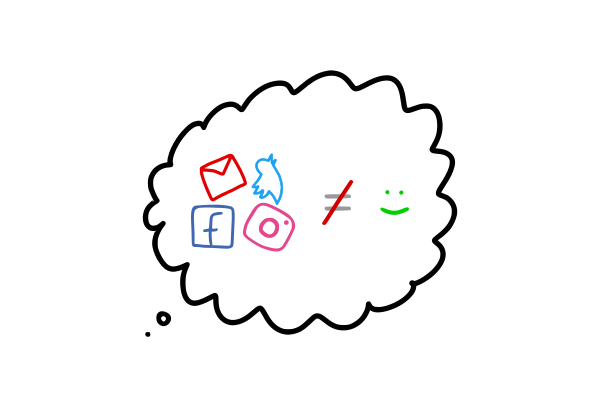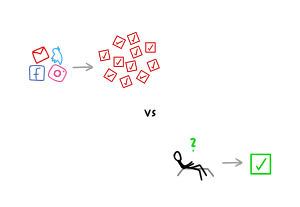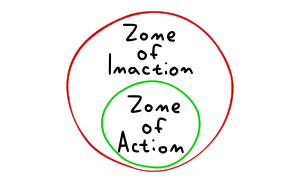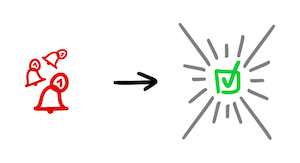How to make quitting your addiction easier

There is one thing most people miss when they try to overcome their addiction. And they make it much more difficult for themselves.
It’s really nothing complicated:
It’s about realizing you don’t want to be doing it anymore.
You might be saying: “but that’s common sense!”
Sure, it is but that doesn’t make it a common practice because most people don’t follow this path.
Let us explain.
Most people try quitting their addiction by banning themselves from doing it.
However, this makes them feel a constant pull towards the behavior. It’s forbidden fruit, a desire that they’re trying to run away from.
It often looks like this: “I should stop smoking, it’s bad for me and costs me a lot of money”.
Then they go on and try to stop smoking.
However, when people quit like this, they still desire to have another cigarette.
It becomes a constant struggle between their desires and willpower.
When a bad day comes, a lot of people give up their attempt to quit and smoke again.
And the bad day always comes.
There is a better way to do this…
It’s about seeing through the illusion of satisfaction.
It’s about realizing you don’t want to be doing it anymore.
This is highly subjective and you need to come to this conclusion by yourself.
But if you do, quitting and staying away from the addiction becomes much easier.
Is it really satisfaction?
We often believe that the addictive thing brings us satisfaction.
- We often mistake instant gratification for long term satisfaction (feeling a bit better immediately but feeling terrible in the long run). E.g. Escaping loneliness by scrolling on Instagram.
- Also this is often nostalgia (remembering the good old days). The thing in the past brought us satisfaction and we remember it like that. E.g. playing old games
Addictions often start as a way to find pleasure, but over time they turn into a form of pain avoidance. You no longer get satisfaction from indulging, you just feel psychological pain if you don’t.
However, if you realize that the addiction is ultimately empty, and doesn’t really add anything good to your life, then you’re on the right path.
Seeing through the illusion makes the magic go away
If you know how the magic trick works, it loses its appeal.
Most people abandon things when they lose interest. In addictions, losing interest (seeing through the illusion) is a bit more difficult because your brain is wired towards craving the thing. The illusion makes you believe that the thing is the way to achieve satisfaction.
If you realize that watching YouTube videos isn’t fun like it used to be or you thought it was (the illusion that it is fun), it loses a lot of its appeal.
If you see through this illusion, you don’t feel the desire to do it anymore.
Is it possible to quit without coming to this realization by yourself? Definitely, but it’s simply much harder and probably less healthy because you will always feel the pull. You might always feel the desire towards the thing.
But what if you already know the activity is bad for you, and you still do it anyway?
Information isn’t knowledge
Having information and having knowledge are 2 different things.
If information was all you needed, then no one would smoke.
Information: Smoking causes lung cancer
Knowledge: I hate how I smell after I smoke
Knowledge is based on your own experience. It’s personal.
People can help you realize the reasons by showing you. People can help you label the issues the thing causes you that haven’t been able to name yourself. People can give you the information (like we do in Reasons to stop surfing mindlessly).
However, it’s you that needs to internalize them, or even better come to your own conclusions.
Quitting is highly personal for everyone
Everyone should have their own reasons for why they don’t want to do it. Generic arguments won’t stand.
I thought that surfing the Internet brings me satisfaction.
In reality, being addicted to the Internet pulled me away from real satisfaction. It actually started pulling me away from any real joy in life. I started to feel disengaged.
I dissected my Internet behaviors and with all of them, I could logically explain why they brought me further away from satisfaction. I mistook immediate gratification for actual satisfaction.
For example:
Reading news multiple times per day doesn’t make me more informed - it makes me more stressed. I lose the ability to see the bigger picture.
Watching YouTube videos instead of real entertainment fills my head with the information I don’t need or care about.
Scrolling on Instagram doesn’t make me more connected, on the contrary, it sometimes makes me feel lonely.
You get the point.
We like to hide from unpleasant truths
Often, we like to stay in denial - hiding from the hard truths. It’s a way to rationalize why you’re doing what you’re doing. This denial protects our fragile egos.
I deserve to have a drink or two after a long day at work. - In reality, drinking every evening.
I need to scroll on my phone in the morning, otherwise, I won’t wake up. - Wasting morning energy and ending up rushed/late because of it.
Why shouldn’t I play this multiplayer game? - In reality, feeling lonely.
Of course, others usually notice this kind of self-deception more clearly than we do ourselves. If they care about you, they try to show you the way out of denial but we’re often close-minded to their suggestions.
Sometimes only after we quit, we start seeing the negative things we were lying about to ourselves. Only after you’re further away, you can see how ridiculous were the actions of your past self.
The question is: do you quit before or after you realize this?
Some kinds of addictions are strong. They don’t let you come to this realization while you’re actively engaging in the addictive behavior. Only after you quit, you come to realize how harmful they were to you and how heavily addicted you were. Often a weekend is enough to experience this.
For example, my catalyst was traveling for a week. A few years ago, I was addicted to playing video games but when I traveled for a week and didn’t have the access to playing video games, I realized how much better my life was. When I came back and felt the urge to play again, the first day I realized how it’s a false promise that steers me off living a fulfilling life. The next day I quit with no regrets and I haven’t looked back since.
This is why different challenges are popular because they allow people to see what life can be without addictive behavior. People mistakenly believe just abstaining is the solution but we’ve covered this here already.
Summary
Quitting something is much easier when you want to do it by yourself.
There are 2 main things you can do to come to the realization that addiction is empty of satisfaction and that you actually don’t want to do this anymore.
- Reflect on the cost of the addiction. Reflect on how it’s not fulfilling you at all. How you feel after you’ve indulged. Pondering the personal negative effects that a specific behavior has on your life is a good initial step. Bonus points if you do this in writing.
- Abstain for a couple of days as an experiment. Remove a distracting app from your phone for a weekend. Plan a trip that will take you away from the environment that makes the addiction easy to engage in.
Ponder your addictive behavior. Realize that it doesn’t bring you the satisfaction it promised and that it’s actually a trap that only makes real satisfaction and joy much harder to experience. Let your discontent crystallize.
But these are only some tips. You need to come to this conclusion by yourself, we (or others) can only help you see the way.
When you voluntarily come to the conclusion that you want to quit, the desire to engage in the problematic behavior will gradually fade away. And it’s much more likely that you’ll actually change.



